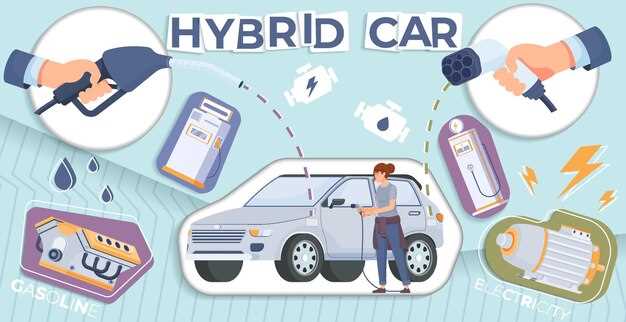
In the realm of automotive innovation, the Toyota Prius stands out as a pioneering example of hybrid technology. This vehicle, which combines a traditional internal combustion engine with an electric motor, revolutionized the way we think about fuel efficiency and environmental sustainability. The engineering behind the Prius is not just about reducing fuel consumption; it represents a significant shift towards a more eco-friendly driving experience.
The Prius employs a sophisticated hybrid system that seamlessly integrates the power of both the gasoline engine and the electric motor. This duality allows the car to operate on electric power alone at low speeds and to switch to the gasoline engine as required during higher speeds or when more power is needed. This adaptability maximizes efficiency and minimizes emissions, showcasing how advanced engineering can contribute to a greener future.
Moreover, the Prius’s hybrid engine is designed with regenerative braking, capturing energy that would otherwise be lost during braking and converting it into electricity to recharge the battery. This feature not only enhances fuel economy but also ensures that the vehicle makes optimal use of its energy resources. Understanding these components is essential for anyone looking to grasp the full impact of hybrid technology in modern vehicles.
How the Hybrid Engine Works in the Toyota Prius
The Toyota Prius utilizes a sophisticated hybrid engine that combines a traditional internal combustion engine with an electric motor. This system is designed to optimize fuel efficiency while reducing emissions. The internal combustion engine operates primarily on gasoline and is responsible for providing the necessary power during driving conditions that demand high performance, such as acceleration or climbing steep hills.
The electric motor, on the other hand, is powered by a high-capacity battery pack. This battery is charged through regenerative braking, which converts kinetic energy from braking back into electricity, extending the range of the electric motor. During low-speed driving and in urban environments, the Prius often operates solely on electric power, allowing for completely emissions-free travel.
When the vehicle accelerates or requires more power, the hybrid engine seamlessly switches between the electric motor and the gasoline engine, or they work together to provide optimal performance. The transition between these two power sources is smooth and unnoticeable to the driver. This hybrid synergy not only enhances efficiency but also improves the overall driving experience.
The engine control unit manages the operation of both the gasoline engine and the electric motor, ensuring the vehicle operates at peak efficiency under varying driving conditions. This intelligent system contributes to the Prius’s reputation as one of the most fuel-efficient vehicles on the market, making it an environmentally friendly choice for modern drivers.
Comparing Fuel Efficiency: Prius vs. Conventional Vehicles

The Toyota Prius is renowned for its impressive fuel efficiency, often serving as a benchmark for hybrid vehicles. Unlike conventional vehicles that rely solely on gasoline engines, the Prius utilizes a combination of an internal combustion engine and an electric motor. This dual approach significantly minimizes fuel consumption while maximizing energy output.
Typical conventional vehicles have engines that operate at a consistent rate, leading to reduced efficiency in stop-and-go traffic or during rapid acceleration. In contrast, the Prius’s engine intelligently switches between electric and gasoline propulsion. When accelerating, the Prius initially relies on its electric motor, which draws power from a rechargeable battery. This design allows for reduced gasoline dependency during low-speed driving conditions.
In terms of numbers, the fuel efficiency of the Prius often exceeds 50 miles per gallon (mpg), whereas conventional vehicles typically average around 20 to 30 mpg, depending on their size and engine specifications. This illustrates a substantial difference in fuel economy, making the Prius a more environmentally friendly and cost-effective choice over time.
Moreover, the regenerative braking system in the Prius captures and reuses energy that would otherwise be lost. When the driver applies the brakes, the system converts kinetic energy into electrical energy, recharging the battery. This feature contributes to the overall efficiency of the vehicle and helps maintain optimal fuel economy.
In summary, when comparing fuel efficiency, the Prius stands out against conventional vehicles thanks to its innovative use of hybrid technology. The combination of an electric motor with a gasoline engine not only enhances performance but also significantly reduces fuel consumption, making it a superior option for eco-conscious consumers.
Maintenance Tips for Optimal Performance of Your Prius Hybrid

To ensure the optimal performance of your Prius hybrid, regular maintenance is crucial. Start by following the manufacturer’s service schedule, which includes inspections of the battery system, brakes, and tires. Regularly checking these aspects can help identify issues before they become significant problems.
Keep the hybrid battery in good condition by ensuring it remains cool. Excessive heat can shorten the battery’s lifespan. Make sure the cooling vents are free from dirt and debris. If you notice a drop in performance, consider getting the battery tested at a certified service center.
Monitor tire pressure regularly, as the Prius is designed for optimal fuel efficiency. Under-inflated tires can hurt performance and increase fuel consumption. Regularly rotate your tires to ensure even wear, which contributes to better handling and extends the life of your tires.
Utilize the regenerative braking system effectively. This technology recharges the hybrid battery while you drive, so try to anticipate stops and slow down gradually, which helps maximize energy recovery.
Change the engine oil and filter according to the recommended intervals. Using the correct type of oil is essential for maintaining engine performance and efficiency. Additionally, check and replace air filters regularly to ensure the engine receives clean air, which is vital for optimal combustion.
Finally, keep an eye on your vehicle’s dashboard for warning lights. Addressing these alerts promptly can prevent minor issues from escalating into larger, more costly repairs. Take your Prius to a certified technician for any significant concerns to ensure you maintain the integrity of the hybrid system.




